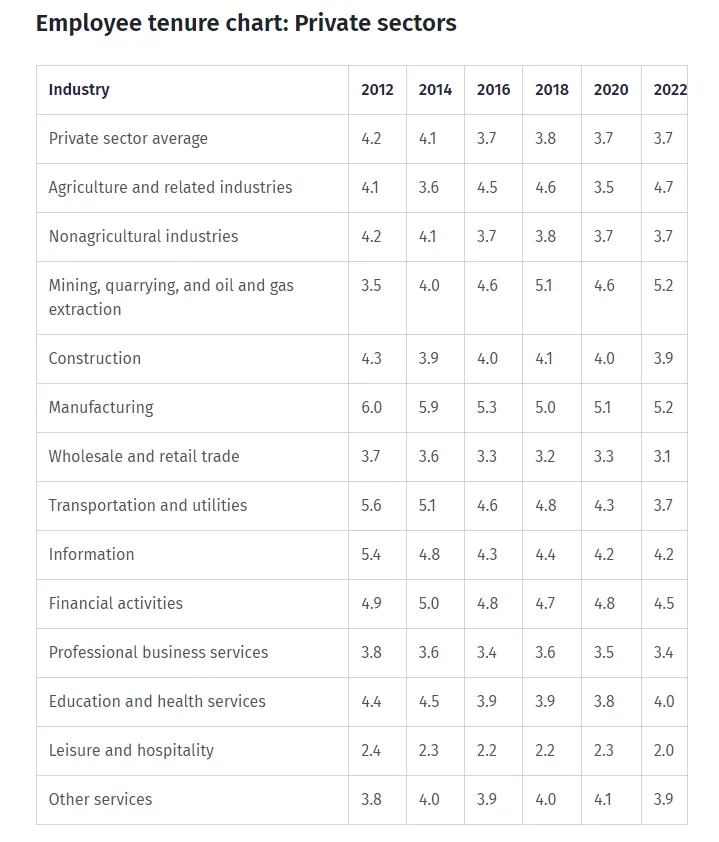Part of my role responsibilities is onboarding new people into the Sales organization, which is made up of different sales functions, including, direct sales, partner sales, renewals teams, sales operations and other support roles. On top of this, I try to include other relevant stakeholder groups as I can, as it is beneficial for people to get a wider view of the organization and how their role interacts with and affects others. This is not my entire role, but it is a significant piece of it at times.

There are many parts to this process and there is a lot of interaction across the stakeholder map, but what is encouraging to be part of over the last few years, is just how many people Come back to the company after some period away. As far as industry standards seem to go and especially in comparison to the US, the average tenure at this company is good, meaning that employee retention and satisfaction is high. For instance, supposedly developers at Google last just over a year on average - which is incredibly short.
The numbers from 2022 out of the US show the trends.
The average across all industries is 4.2 years with the same company. For reference, my fifth year starts in January, and I am a relative noob in the company compared to many. The thing that brings the average down the most, is the growth of the employee base, which has increased another 50% since I started, which had increased by 50% in the two or three years prior to that. At some point, it slows down however, and then the average tenure will climb, as long as employee satisfaction remains strong.
As you can see from the chart though, in the last decade, the average tenure has significantly decreased in nearly every industry, except Mining and Agriculture, which is likely due to decreasing amounts of jobs in those industries, where the more experienced stay, but the jobs replaced by automation aren't filled. This is something to consider when looking at employee churn, because some of it is process-based due to technology and need changes, not only because an organization is poor. However, in general, employee retention is a good indicator of the health of a company.
And there is more to retention than salary, with opportunity for personal and professional development, as well as factors like the company tech stack and ease of process among the often cited reasons for people leaving, or staying. It is far cheaper in the long term, to put effort into developing and retaining good employees, as well as helping them develop into the company further. A lot of companies still see their business like a production line of worker skills, when most IT companies for instance, have far more porous skill models involved, where there are plenty of overlapping possibilities.
For the company I work at, I believe that one of the heavily contributing factors is that there is a strong referral culture for employment, where people will refer candidates they believe will be a good fit for the role and the culture. This creates a trust matrix between stakeholders involved in the hiring process and the applicant, as well as gives those who are successful a nice starting boost in terms of reputation and network. Then, as they build their own social capital and proven track record, they become a trusted node in the network also, which helps attract and onboard new candidates for specific roles.
A lot of companies seemingly have a "perform or out" policy in regards to their employees, without necessarily considering the company role in providing an environment for high performance. As said, there is much more to it than an attractive salary package, because that salary doesn't do the work, the person does and for most, working for salary alone will not drive high performance for very long. These days, worktime flexibility is a big factor, which people have translated into "working from home" when it needn't be that. The company I work for has always been flexible, and little has changed.
What has been interesting for my to reflect on as I participate and observe onboarding activities, is what inspires people to be their best. The money is a necessary factor where it has to be "enough" for the job, but the bigger component for motivation seems to be the interpersonal interaction between colleagues, where people feel a sense of responsibility and commitment to the people they work with. And, since this isn't one of those "go through the paces" kinds of positions, people have to be flexible in many ways for others, because they are going to need others to be flexible for them at times too. This is why establishing a strong internal network is so valuable, and one of the reasons that many will suffer if they don't do this, essentially ostracizing themselves from the support they need.
I think that if I were to move to another company, I would ask what their employee retention is like, because if they are unable to keep employees for some reason, I would want to know what my chances of staying there would be. At my "age", I am not interested in moving from job to job every couple of years for more money and instead, I would prefer to be somewhere I can grow my role and responsibilities through developing myself and the company. Tying my future to an organization is risky, but is it riskier than continually starting somewhere new? Eventually, the carousel stops, right?
There are many reasons for the enormous change in retention numbers, but I think a large part of it comes down to the shifting culture, where people are unhappier faster than they were in the past, so leave. While this might make things better in the short term for the individual leaver, in the long term, it is a trend of high employee turnover, which leads to continued degradation of the workplace environment, which will accelerate the process even faster.
While there are many ways to improve employee engagement and retention, money isn't a good one, as any company has to offer it. Ultimately, it comes down to the competitive advantage of the harder to achieve factors, like a valued culture and professional social network, as well as a toolkit that enables people to be more of their best and deal with less of the rest. To do this requires making significant investments into aligning processes, responsibilities and encouraging an environment where people value each other, not only the job they do.
And I think this last one is a big part of why so many of us don't enjoy our work, because we don't feel that we as a person are valued, even if we are doing the job well. "We" are not our jobs, so pretending that all we need is to complete tasks is counterproductive, because if we need to feel valued, we should also be making sure we value others. How do you show appreciation your colleagues?
Taraz
[ Gen1: Hive ]
